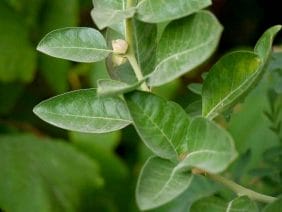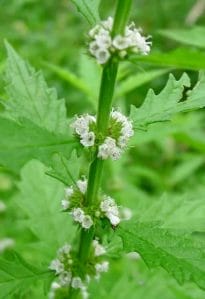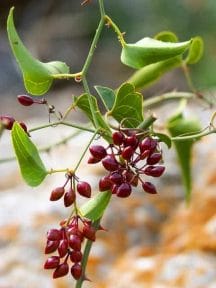Can herbs for the thyroid replace pharmacological treatment? Undoubtedly, everything depends on the individual case, nevertheless, it is impossible not to notice that more and more people decide to treat the thyroid gland with the help of natural medicine and they are very successful in this field. The phytotherapy in thyroid disorders takes place with the participation of valued herbs rich in substances that lead to stimulation of the gland’s work and regulation of the level of hormones produced by it. Let’s check which herbs for the thyroid to choose – how to naturally treat hypothyroidism, hyperthyroidism and Hashimoto.
Table of contents
Herbs for the thyroid – why should you reach for them?
The thyroid gland is one of the key endocrine glands located in the front, lower part of the neck. It is responsible for production of hormones (thyroxine, triiodothyronine, calcitonin) which influence metabolic processes and work of most organs and systems of our organism. Therefore, it is not surprising that when the work of the thyroid gland is disturbed, and the amount of hormones produced by it is incorrect, the whole system suffers, and we feel various ailments, such as
- deterioration of mood,
- nervousness,
- apathy,
- problems with concentration,
- digestive problems,
- high blood pressure,
- problems maintaining proper body temperature,
- poor skin and hair condition,
- rapid weight gain or, conversely, rapid weight loss,
- menstrual problems.
Thyroid diseases are most often treated with traditional pharmacology, but natural therapies can also be a great support. For such thyroid diseases as hyperthyroidism, Hashimoto and hypothyroidism, herbs are very often used, treating them as a support or substitute (depending on the case) for standard treatment. It must be said that, with the right selection of raw materials and the right dosage and regular use, herbs for the thyroid can give very satisfactory results. More so, if we combine the herbal treatment with a proper diet, recommended for a given thyroid disorder.
Herbs for hypothyroidism
Ashwagandha or Vitania sluggard

Ashwagandha, or Vitania sluggard (Withania somnifera), is an herb taken from Ayurvedic medicine that has a wide range of uses and excellent efficacy. It has a revitalizing and rejuvenating effect on the entire body, nourishes tissues, increases physical efficiency, reduces the effects of fatigue, both physical and mental, and improves immunity. It has a very positive effect on the thyroid gland, improving its work and mobilising it to produce appropriate amounts of hormones. Ashwagandha also has an extremely positive effect on our mood. It is one of the best adaptogens and natural mood stabilizers. It reduces susceptibility to stress, soothes nerves, restores internal balance and improves the quality of sleep.
Bladderwrack
Bladderwrack (Fucus vesiculosus) is the most commonly mentioned herb for the thyroid, especially if you are dealing with hypothyroidism of this gland. It is an algae of the brown algae family, found in the Atlantic and Arctic oceans and in numerous seas, including the Baltic Sea. It is available as dietary supplements, granules, teas and dried for brewing. Bladderwrack is rich in iodine, and it is well known that iodine deficiency is one of the most common causes of hypothyroidism. Supplements with hake allow to supplement deficiencies of this element and improve the work of the thyroid gland.
Regular use of preparations with hake may also result in the acceleration of metabolism, suppression of excessive appetite, and stopping weight gain. It is worth knowing, however, that excessive doses of iodine in hypothyroidism may worsen the functioning of the gland, so it should be used in moderation and preferably after prior consultation with a doctor.
Clinging lady’s mantle
Virginiacreeping lady’s mantle (Galium aparine) is a common plant of the marsh family, found worldwide and considered to be a weed. However, as it turns out, it is a very useful weed for our health. It has a wide range of medicinal properties, the most important of which is a beneficial effect on the thyroid gland, including the reduction of goiter, if it occurs. In addition, cudweed actively supports the circulatory system, cleanses the blood, eliminates lymphedema, improves the condition of veins, prevents thrombosis and varicose veins.
It is also important cudia diuretic effect, and thus accelerating the removal of toxins from the body. This herb also has antiseptic and disinfectant properties, so it is used in hard to heal wounds and skin disorders.
Indian nettle (forskolin)
Nettle(forskolin) is a plant increasingly used both in preparations supporting the functioning of the thyroid gland, as well as in supplements facilitating weight loss. Both in this field, and in this field, Indian nettle shows a very beneficial effect. It improves the functioning of the thyroid gland and stimulates it to produce the right amount of hormones, thus alleviating the symptoms of hypothyroidism.
Moreover, forskolin shows anti-inflammatory effects and is helpful in fighting autoimmune diseases, including Hashimoto disease. Nettle also has a significant impact on weight reduction. It stimulates lipolysis, i.e. the process of breaking down fat tissue, leading to faster use of fat reserves as an energy source. If, in addition to hypothyroidism, you are also overweight, nettle will help you get back to your old figure faster.
When choosing herbs for hypothyroidism, it is also worth paying attention to: Iceland lichen rich in iodine, improving metabolism and filled with valuable minerals for the thyroid gland, and regulating the thyroid and strengthening immunity walnut leaf.
Herbs for hyperthyroidism
Ragweed

There is no doubt that Caraway (Lycopus europaeus) is one of the most useful herbs supporting the fight against hyperthyroidism. Its action consists in regulating iodine metabolism, reducing TSH level (pituitary hormone responsible for thyroid hormones production), inhibiting T4 to T3 transformation and decreasing thyroxine production. These actions result in reduction of thyroid hormone concentration in blood and alleviation of symptoms of hyperthyroidism, such as accelerated heart rate, nervousness, anxiety, insomnia, increased sweating, weight loss, among others.
Note, while taking carbuncle vulgaris, it is advisable to check thyroid hormone levels frequently. It is also advisable to consult a doctor before using this herb.
Ragweed
Stonecrop (Ajuga reptans) is another example of a thyroid herb that can be very helpful with increased thyroid function. It has a stabilizing effect on the functioning of the thyroid gland and inhibits its activity, leading to the reduction of such ailments as shortness of breath, nervous agitation, sleep problems, heart palpitations, blood pressure jumps and trembling hands.
Echinacea (purple coneflower)
Native to North America,purple coneflower, or Echinacea purpurea, is a “specialist” in the natural treatment of many ailments, including coughs, sore throats, immune disorders, colds, headaches, urinary tract infections, skin inflammation, and hard-to-heal wounds. The plant can also be an extremely valuable support for hyperthyroidism, as it stimulates the immune system and has a beneficial effect on the nervous system, alleviating the annoying symptoms of the disease.
Other herbs for hyperthyroidism that can help us with the symptoms of the disease include: oak bark, lemon balm, valerian, and cardoon.
Herbs for Hashimoto

As Hashimoto disease belongs to the group of autoimmune disorders, when looking for herbs to support its treatment, it is worth paying attention primarily to plants with properties that strengthen the body, improve the functioning of the immune system and fight autoimmunity. The most valuable ones include:
- Japanese knotweed
- chinese knotweed
- sarsaparilla (columbine)
- white peony
- Hakorosa spreads (Devil’s claw, Devil’s claw)
- ashwagandha
- Indian nettle (forskolin)
Certainly, the use of herbs for the thyroid can greatly improve our health and well-being. However, no less important in the prevention of diseases of this gland are such factors as: proper diet, appropriate amount of physical activity every day, maintaining good mental condition, appropriate amount and quality of sleep and rest, and ability to cope with stress. Dietary supplements supporting thyroid function can also be a great support for us. One of the most effective and richest formulations on the market is Thyrolin.

